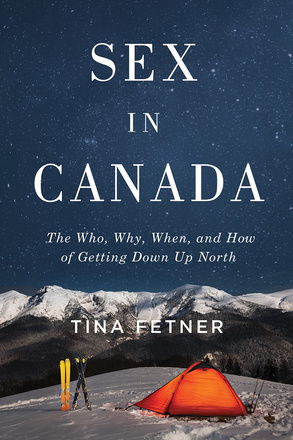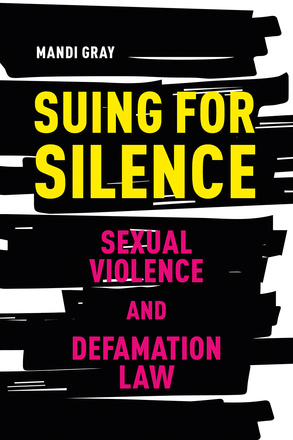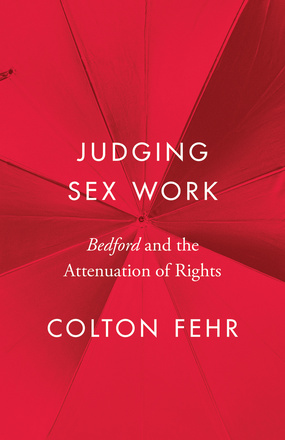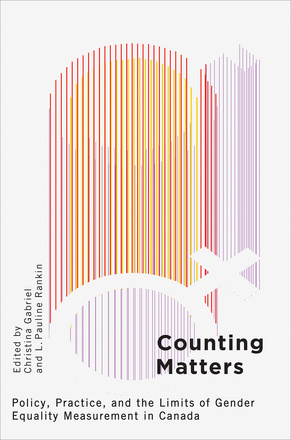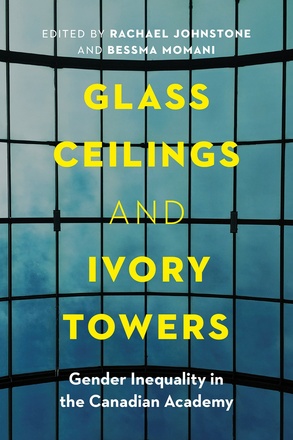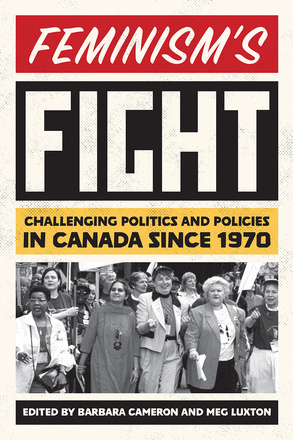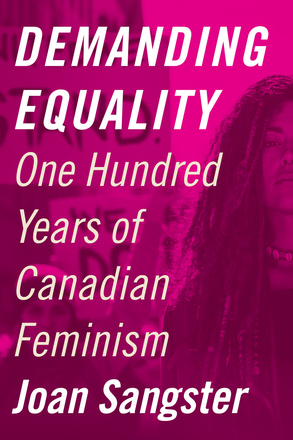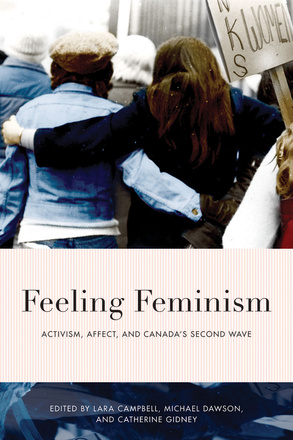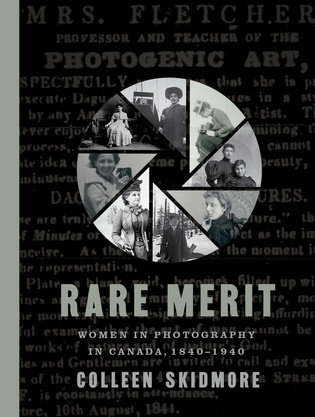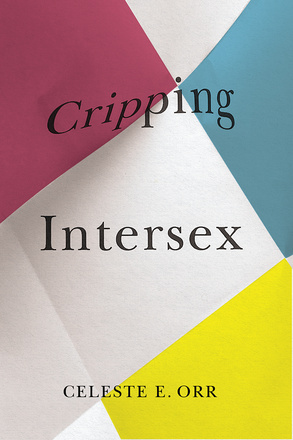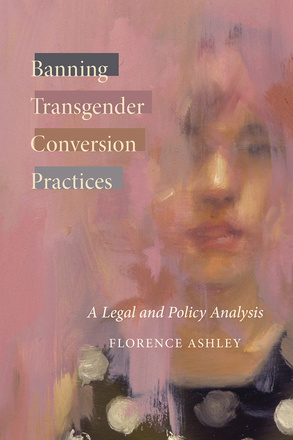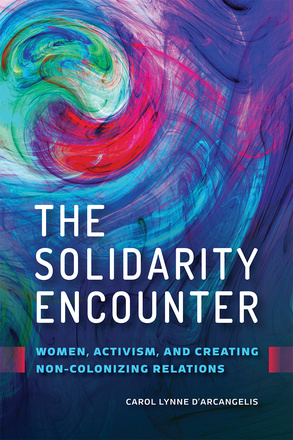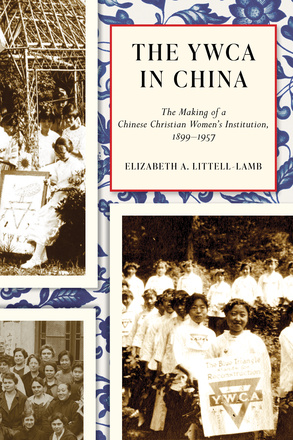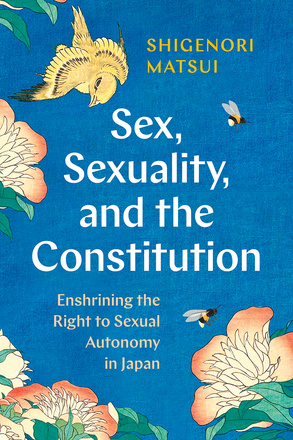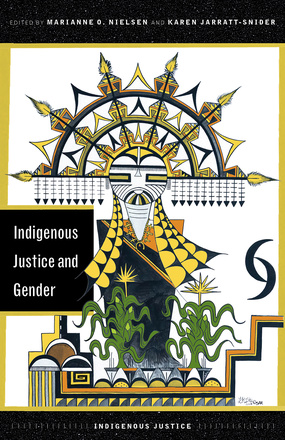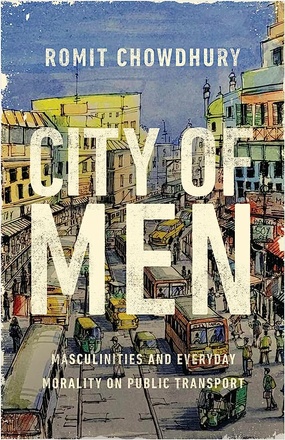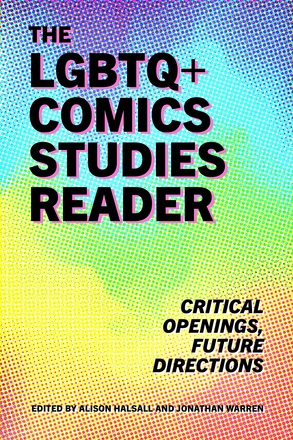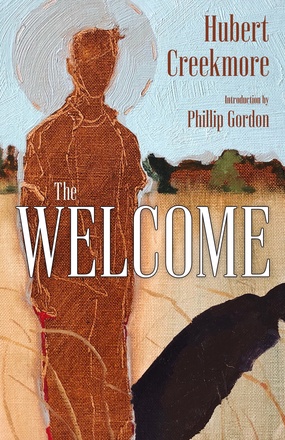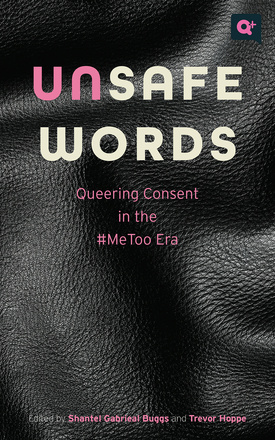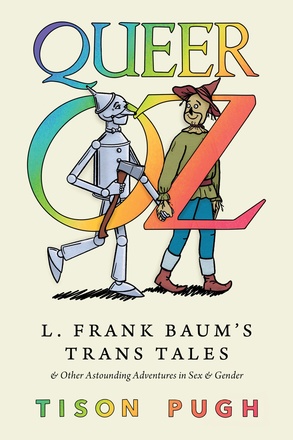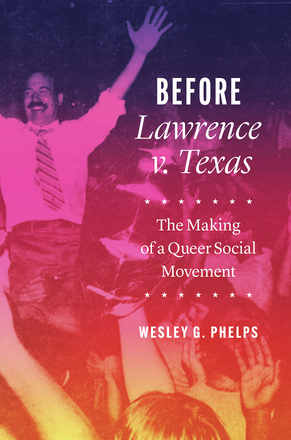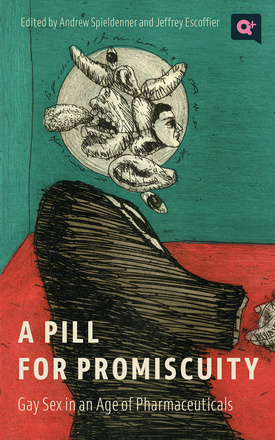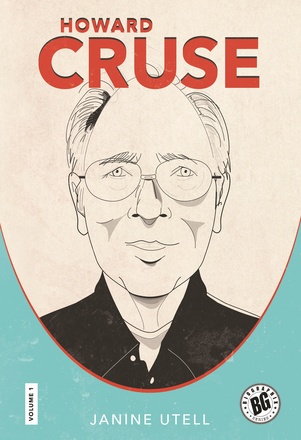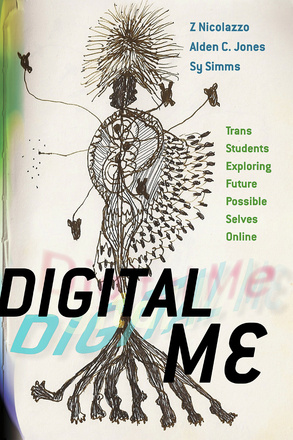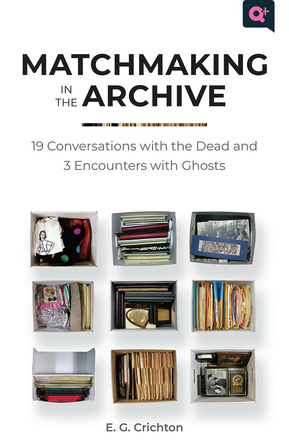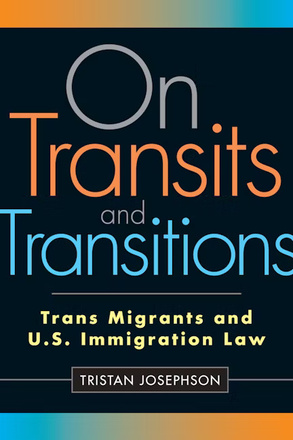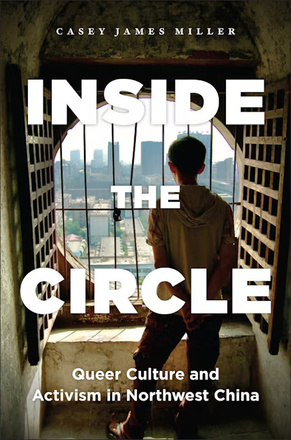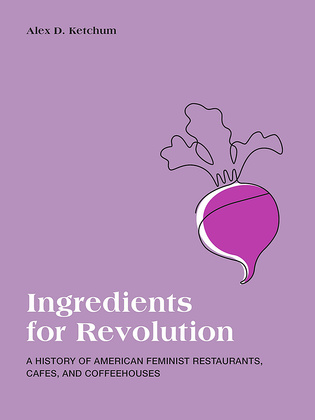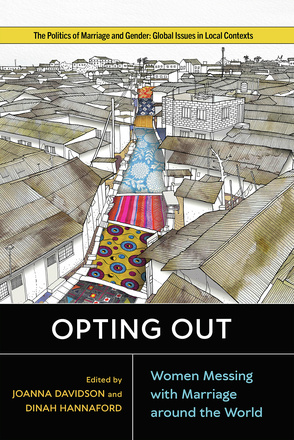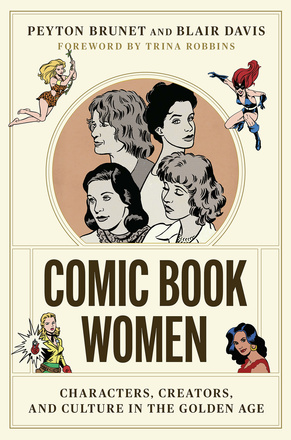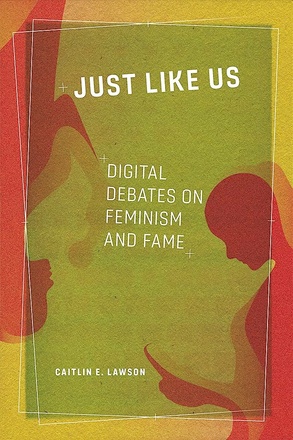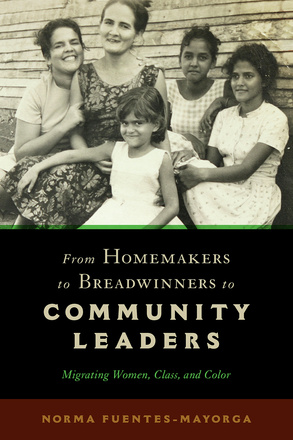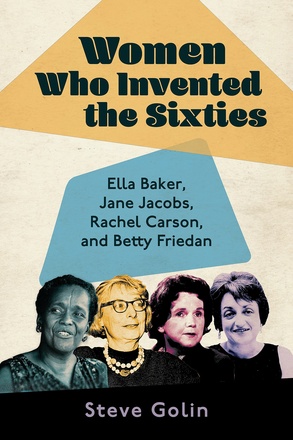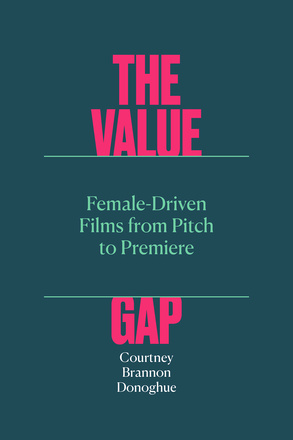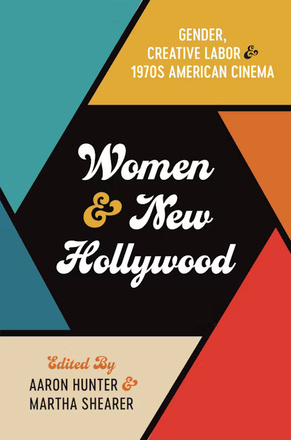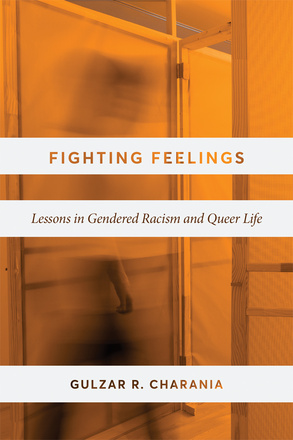
Sex in Canada offers a unique, definitive, and surprising exploration of sex and sexuality among Canadians.
Suing for Silence exposes the phenomenon of lawsuits whose purpose is to silence those who disclose sexual violence, revealing the gendered underpinnings of Canadian defamation law and its chilling effect on public discourse including formal reports of sexual violence.
Judging Sex Work argues that a decision widely considered to be a victory for social justice weakened sex workers’ rights far more than it strengthened them.
Counting Matters emphasizes the importance of gender measurement as a distinct policy and social phenomena while exposing the flaws of the technocratic assumption that all aspects of gender equality can be strictly quantified.
Glass Ceilings and Ivory Towers amasses vital, data-driven research that both corroborates enduring accounts of inequality for women academics and offers pathways toward substantive policy change.
Feminism’s Fight shows how fifty years of feminist struggle over public policy can inform today’s fight for gender justice and against continued discrimination.
In a wide-ranging survey of Canadian feminism from the 1880s to the 1980s, Demanding Equality reveals a continuous, vibrant, and often contentious search for equality, autonomy, and dignity.
Feeling Feminism is a groundbreaking collection of interdisciplinary scholarship on second-wave feminist history and feminist social movements in Canada that puts emotions at the centre of the story.
Rare Merit illuminates the impact of women as portraitists, travel documentarians, photojournalists, fine artists, hobbyists, and printers in the early years of photography in Canada.
Cripping Intersex explores the political, discursive, and embodied connections between intersex and disability to develop a radically innovative approach to intersex studies and activism.
Banning Transgender Conversion Practices is the first book to offer a comprehensive analysis of how conversion practices targeting transgender people are regulated around the world.
This compassionate yet unflinching exposé of the pitfalls of Indigenous–non-Indigenous solidarity work offers a constructive framework for non-colonizing solidarity that can be applied in any context of unequal power.
The YWCA in China traces the history of this Christian organization – and the social philosophies of the Chinese women who led it – through the tumultuous first half of the twentieth century.
Sex, Sexuality, and the Constitution persuasively demonstrates the need to entrench protections for individual sexual autonomy within constitutional law.
This new book offers a broad overview of topics pertaining to gender-related health, violence, and healing. Employing a strength-based approach (as opposed to a deficit model), the chapters address the resiliency of Indigenous women and two-spirit people in the face of colonial violence and structural racism.
How do men experience gender in the city? Through descriptions of autorickshaw and taxi operators and their interactions with traffic police and commuters in Kolkata, India, this book highlights the gendered logics of cooperation and everyday morality through which masculinities take up space in cities.
An essential volume that acknowledges and celebrates the power of LGBTQ+ comics
A new edition of the important, long out-of-print novel
Telling a queerer side of the #MeToo story, Unsafe Words brings together academics, activists, artists, and sex workers to tackle challenging questions about sex, power, consent, and harm. Resisting the heteronormative assumptions, class norms, and racial privilege underlying much #MeToo discourse, they explore how queer communities might better prevent and respond to sexual violence.
The first scholarly monograph to focus on L. Frank Baum’s portrayals of queerness and sexuality in his more than seventy works of fiction
The grassroots queer activism and legal challenges that led to a landmark Supreme Court decision in favor of gay and lesbian equality.
This collection brings together academics, artists, and activists—from different generations, countries, ethnic backgrounds, and HIV statuses—to reflect on how gay sex has changed in a post-PrEP era, critique the role Big Pharma now plays in queer life, and argue for the value of sexual community, promiscuity, and pleasure.
The Internet is a potent site from which to theorize, but also imagine, invest in, and explore the prismatic possibilities for life. Digital Me explores how transgender people use the internet in myriad ways. The book explores online life--from cultivating identity to creating community and everything in between.
To help preserve the legacies left by earlier generations, artist E.G. Crichton selected 19 innovative LGBTQ artists, writers, and musicians to pair with deceased person whose personal artifacts are part of the Gay Lesbian Bisexual Transgender Historical Society archive. Including 25 pages of vivid images, Matchmaking in the Archive documents this remarkable creative project.
Focusing on the intersection of immigration and trans rights, On Transits and Transitions examines the processes through which the category of transgender is incorporated into U.S. immigration law and policy. Using mobility as a critical lens, Josephson captures the insecurity and precarity created by U.S. immigration control and related processes of racialization to show how im/mobility conditions citizenship and national belonging for trans migrants in the United States.
Drawing on over a decade of fieldwork, Inside the Circle: Queer Culture and Activism in Northwest China explores how everyday queer Chinese people are courageously taking part in both local and global expressions of queer culture and activism while also striving to lead traditionally moral lives in a rapidly changing society.
Coinciding with the fiftieth anniversary of the trailblazing restaurant Mother Courage of New York City, Ingredients for Revolution is the first history of the more than 230 feminist and lesbian-feminist restaurants, cafes, and coffeehouses that existed in the United States from 1972 to the present.
Opting Out offers sensitive and powerful ethnographic portrayals of women in Africa, Asia, and Latin America who are quietly opting out of marriage. Across these diverse geographic contexts,this edited volume shows that women are the (often unwitting, mostly unacknowledged) protagonists of profound changes in marriage, gender, and kinship.
An exciting and detailed study of the explosion of women’s food writing in the early 2000s
A revisionist history of the origins of comic books that reclaims women’s pioneering and pivotal roles as both creators and characters.
In Just Like Us: Digital Debates on Feminism and Fame, Caitlin E. Lawson examines the rise of celebrity feminism, its intersections with digital culture, and its complicated relationships with race, sexuality, capitalism, and misogyny. Through in-depth analyses of online debates, Lawson demonstrates how networked negotiations of celebrity culture and feminism are transforming popular engagements with the movement.
From Homemakers to Breadwinners to Community Leaders compares the immigration and integration experiences of Dominican and Mexican women in New York City. The book documents the significance of women-led migration within an increasingly racialized context and underscores the contributions women make to their communities of origin and of settlement. Fuentes-Mayorga’s research is timely, especially against the backdrop of policy debates about the future of family reunification laws and the unprecedented immigration of women and minors from Latin America.
A celebration of the distinctive and politically defiant art of Black queer, cis-, and transfemmes, from the work of Janelle Monáe and Janet Mock to that of Indya Moore and Kelsey Lu.
A riveting new biography exploring four women’s fundamental roles in creating the 1960s as we know them today and their lasting legacies
How female directors, producers, and writers navigate the challenges and barriers facing female-driven projects at each stage of filmmaking in contemporary Hollywood.
Women and New Hollywood revises our understanding of 1970s American film by examining the contributions that women made not only as directors, but also as screenwriters, editors, actors, producers, and critics. Considering both women working within and beyond the Hollywood film industry, this collection showcases the rich and varied cinematic products of women’s creative labor.
Fighting Feelings investigates the lived experiences of women of colour to reveal the complex ways that white supremacy is felt, endured, and navigated.

